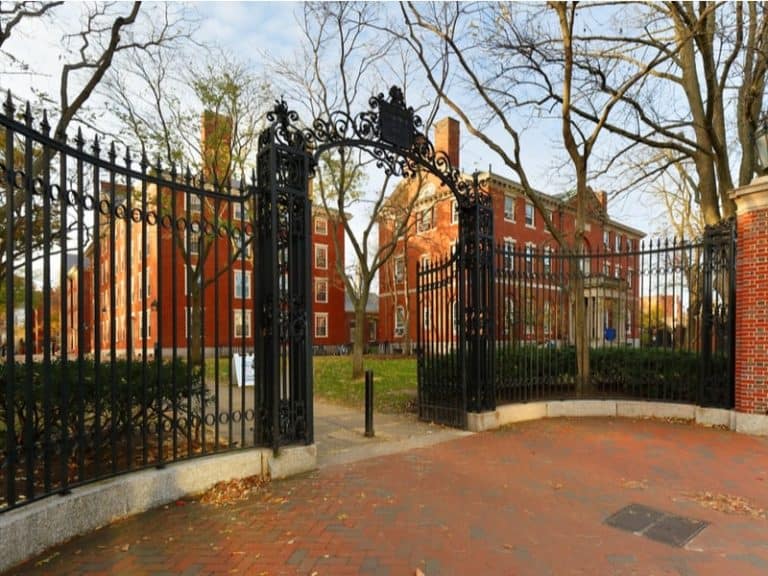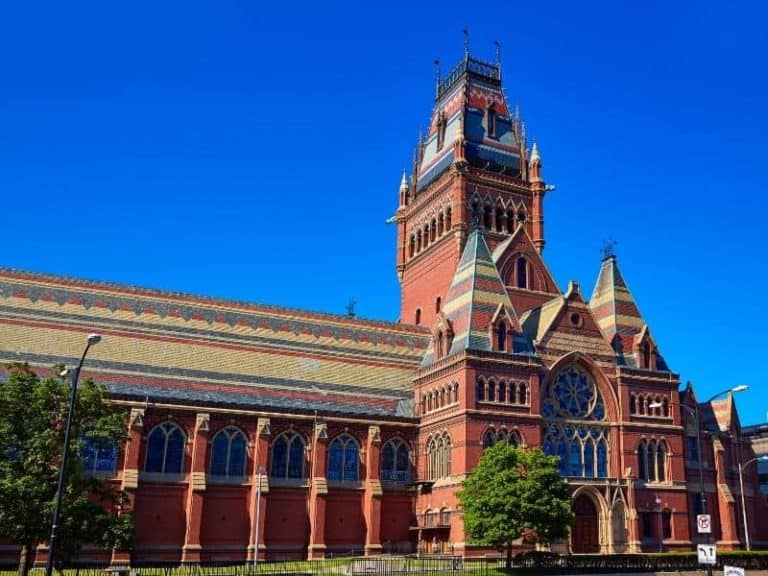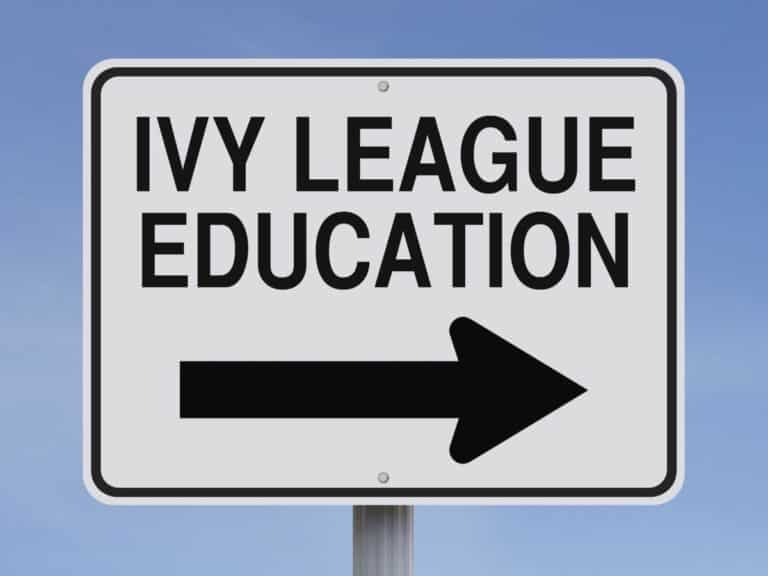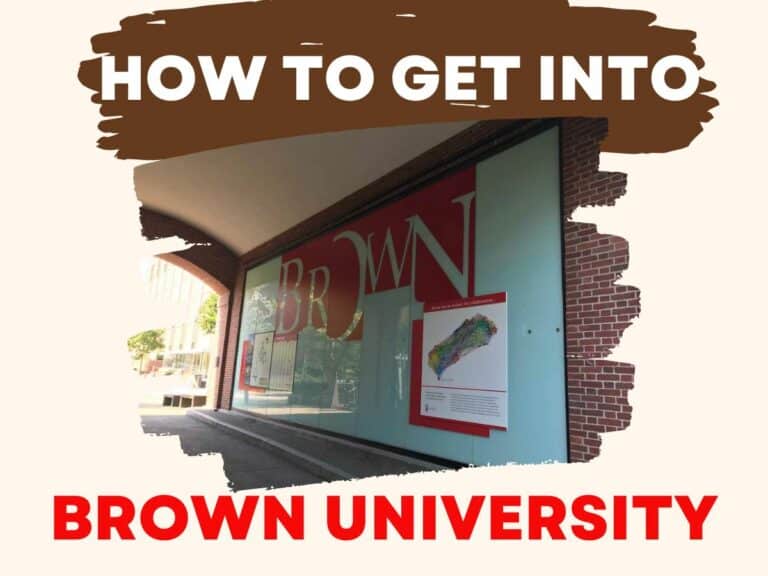How to Transfer From Community College to Ivy League
So, you are interested in transferring to a four-year institution. But you want to go to not just any college or university — your goal is to become an Ivy League student and earn a bachelor’s degree from it, too.
Transferring from a community college to an Ivy League school is possible. However, because transfer acceptance rates are generally lower than first-year acceptance rates, it’s a must for a transferee to have a high college GPA and a solid application to get accepted into the Ivy League of choice.
Looking for tips on transferring from a community college to an Ivy League? Look no further!
Below, we will discuss just everything you need to know about taking your community college credits or degree to a prestigious college or university, such as one of the Ivy Leagues.
Do Ivy Leagues Accept Transfer Students From Community Colleges?
Ivy League schools accept transfer students from community colleges. Whether applicants have already earned their associate degrees or not, they can get accepted into Ivy League schools as transferees for as long as their college applications meet or even surpass the admissions requirements.
Like most institutions for higher education, Ivy League schools and other elite colleges and universities accept both freshmen students and transferees.
That being said, being denied of acceptance into the premier school of your dreams you wish to transfer to should be the least of your concerns. Provided that your college GPA and SAT or ACT score are within or above the average range of GPAs and standardized test scores of admitted students, you might get an acceptance letter, too.
Because you are already in college, the Ivy League school you want to attend will no longer care about your high school GPA. Transfer students are evaluated based on the GPA earned in college.
So, in other words, it doesn’t matter whether or not your high school GPA looks impressive.
One of the nicest things about attending a community college before applying to an Ivy League school or any other selective college or university is that it allows you to have a GPA high enough for admission.
You can think of it as a second chance to have a GPA you can be very proud of if you are completely unhappy with your high school GPA.
Besides earning a better GPA, going to a community college before applying to another institution also gives you the opportunity to have an SAT or ACT score high enough to excite admissions officers.
After all, it’s not just the GPA that will be inspected when you apply to an Ivy League school but various other parts of your application, too, including your standardized test score.
Many of the most competitive colleges and universities on the planet, including the Ivy Leagues, have a holistic approach to their admissions process.
Related Article: How to Tell Your Parents You Want to Transfer Colleges
And this takes us to this pressing question that requires an answer…
Can You Take the SAT or ACT While in Community College?
College students can take standardized tests. The College Board and ACT, Inc., the ones that created and administer the SAT and ACT, respectively, do not forbid non-high school students from taking standardized tests. Community college students may take the SAT or ACT before or after graduation.
Refrain from assuming that students in the sophomore year and junior year of high school are the only ones that can take standardized tests for the purpose of meeting the requirements for college admissions.
There is no maximum age limit to register for and take the SAT or ACT.
However, there are a few things to keep in mind when it comes to very young students who wish to take standardized tests. According to the College Board itself, as of this writing, those who are under 13 years of age are not allowed to register for as well as take the SAT due to federal regulations.
Related Article: How Old Do You Have to Be to Apply for College?
On the other hand, students below 13 years of age may get in touch with ACT Customer Support to seek assistance and complete the registration for the test. That’s because they are not allowed to create a MyACT account.
For as long as you are 13 years of age or above, you can take the SAT or ACT if necessary — it doesn’t matter if you are still in high school or college or already a working professional. You can take the SAT for an unlimited number of times, although only your most recent six scores will stay on file at any given time.
Taking the ACT can also be done without any limit. However, it’s important to note that you can take the ACT only seven times a year. So, if you wish to retake it for the eighth time, you will have to let the year-end before being able to do so. ACT scores do not expire alright, although those that are five years old may no longer be valid.
And now that we have established the fact that you can take the SAT or ACT while attending a community college, it’s time to answer this question that some transferees feel too shy to ask…
Do Colleges Require Transferees to Submit Test Scores?
As of this writing, many colleges and universities in the US allow transfer applicants to decide whether or not they will submit their standardized test scores. They include Ivy League schools. Some competitive institutions recommend submission of SAT or ACT scores despite being test-optional.
Having a test-optional admissions policy is not uncommon among a lot of today’s institutions for higher education. They include top-notch schools that used to admit applicants with high standardized test scores only.
If you are about to transfer to an Ivy League school, you may freely choose between submitting your test score and keeping it to yourself. That’s because, to date, all Ivy Leagues are test-optional. So, in other words, they do not require transfer applicants (and even first-year applicants) to submit their SAT or ACT scores.
Very proud of your high standardized test score? Then it’s a good idea to submit it anyway.
That’s because the admissions officers at the Ivy Leagues will consider SAT or ACT scores if they are submitted. They make it clear, however, that transfer applicants who choose not to submit theirs will not be disadvantaged in the admissions process.
What’s more, they will not be asked for their reason for leaving out their standardized test scores.
Check out this application checklist for transferees applying to Ivy League schools:
Brown University
- Application fee of $75 or a fee waiver
- Common App
- Official copy of high school transcript
- Official copy of college transcript
- College report
- Mid-term report
- Two evaluations from faculty members who have taught applicant at current college (one may be replaced with a recommendation from a teacher from the applicant’s senior year of high school)
- SAT or ACT score: optional
Cornell University
- Application fee of $80 or a fee waiver
- Common App
- Official copy of high school transcript
- Official copy of college transcript
- Academic evaluation
- College report
- Mid-term report
- Cornell University transfer questions
- Writing supplement
- SAT or ACT score: optional
Related Article: How to Get Into Cornell University: Ultimate Guide
Columbia University
- Application fee of $85 or a fee waiver
- Coalition App (Common App is for first-year applicants only)
- Coalition App transfer report
- Coalition App curriculum report
- Official copy of high school transcript
- Official copy of college transcript
- Two college academic recommendations
- SAT or ACT score: optional
Dartmouth College
- Application fee of $90 or a fee waiver
- Application through Dartmouth College’s very own transfer application
- Official copy of high school transcript
- Official copy of college transcript
- College report
- Two evaluations from college instructors
- Two essays
- SAT or ACT score: optional
Harvard University
- Application fee of $75 fee or a fee waiver
- Coalition App or Common App
- Coalition App or Common App writing supplement
- Harvard College Questions
- Official copy of high school transcript
- Official copy of college transcript
- College report (or Dean’s report or Registrar’s report)
- SAT or ACT score: optional (submission is strongly recommended)
Princeton University
- Application fee of $70 fee or a fee waiver
- Coalition App or Common App
- Princeton’s transfer supplement (submitted via the Coalition App or Common App website)
- Official copy of high school transcript
- Official copy of college transcript
- College report
- Mid-term report
- Graded written paper
- Two academic recommendations (at least one from a college instructor)
- SAT or ACT score: optional
University of Pennsylvania
- Application fee of $75 or a fee waiver
- Common App or Coalition App
- Official copy of high school transcript
- Official copy of college transcript
- College report
- Mid-term report
- Two letters of recommendation
- Penn-specific essay
- SAT or ACT score: optional
Related Article: How to Know Your Chances of Getting Into UPenn
Yale University
- Application fee of $80 or a fee waiver
- Common App or Coalition App
- Official copy of high school transcript
- Official copy of college transcript
- College report
- Mid-term report
- Two evaluations from college faculty members or teaching assistants
- Yale-specific questions
- SAT or ACT score: optional
Keep in mind that the Ivy Leagues and other schools may once again require SAT or ACT scores at any time they like. Or they may turn their test-optional admissions policy into the test-blind or text-flexible kind.
Because of this possibility, make sure that you visit an Ivy League’s website and check out the things transfer applicants need to submit before sending your application to it.
Related Article: Can You Use Both Common App and Coalition App?
When is the Best Time to Transfer to an Ivy League?
Although community college students can transfer to Ivy Leagues or other four-year institutions at any given time, it’s a much better idea for them to earn their associate degree first. Around 82% of community college students who complete their degree obtain a bachelor’s degree more successfully.
The thought of attending a prestigious school anytime soon can be exciting. Due to this, you may feel tempted to apply to your dream school after just a few semesters at a community college.
However, consider getting your hands on an associate degree before sending an application to an Ivy League school or any other college or university for a bachelor’s degree. That’s because there are advantages that come with it, which you may not enjoy if you transfer prior to graduation. Some of the perks of waiting include:
- Cheaper tuition costs. Completing an associate degree program at a community college allows you to transfer more credits, thus allowing you to cut down the cost of attendance.
- Reduced time in college. Another reason why being an associate degree holder can make earning a bachelor’s degree cheaper is that you will have to spend less time at your chosen four-year institution, be it an Ivy League or a selective college or university with an Ivy League-like status.
- Increased job market value. Planning to work while completing a bachelor’s degree program to pay for college? Having an associate degree allows you to be eligible to apply for jobs with good pay.
- Guaranteed admission. Sometimes, an associate degree can serve as an assurance that some four-year institutions will accept you. For instance, the so-called Associate Degree for Transfer (ADT) available at some community colleges in California guarantees admission into participating Cal State and private schools.
There are times when staying for a while at a community college is a must if you want to gain admission into a bachelor’s degree-granting institution, especially one that’s prestigious.
For instance, not all transferees are welcome to apply to Brown University, which, as everyone knows, is an Ivy League. The school’s admissions office says that for students to be eligible to apply to Brown University as transferees, they must have completed at least one year of full-time college enrollment by the time they apply.
It’s not enough that you already have an associate degree under your belt when you apply to an Ivy League.
Applying before the deadline is important, too. This is true since available slots for transfer students, especially at highly selective schools such as Harvard University, Dartmouth College and the rest of the Ivy Leagues, are extremely limited. As a general rule of thumb, the earlier you apply as a transferee, the higher your admissions chances.
To make sure that you will be able to submit your application on time instead of applying to the Ivy League of your choice the following semester, check out these deadlines for transfer application:
| IVY LEAGE COLLEGE | DEADLINE | ADMISSIONS DECISION |
| Brown University | 1-Mar | Early May |
| Columbia University | 1-Mar | 21-May |
| Dartmouth College | 1-Mar | Mid-May |
| Harvard University | 1-Mar | 15-Jun |
| Princeton University | 1-Mar | 15-May |
| Yale University | 1-Mar | 10-May |
| Cornell University | 15-Mar | Late April |
| University of Pennsylvania | 15-Mar | May |
As always, it’s a good idea to visit the website of the Ivy League school you wish to apply to in order to ensure that you will be made aware of any changes in the deadline for the submission of applications for transferees.
Are Acceptance Rates for Transferees Lower Than for Freshmen Students?
Generally speaking, at most colleges and universities, the acceptance rates for transfer students are so much lower than the acceptance rates for incoming first-year students. This is especially true for competitive schools, such as the Ivy Leagues, known to have some of the lowest acceptance rates.
College-bound high school kids are not the only ones who should check out the acceptance rate of a college or university before applying to it. Someone who is already in college and wishes to transfer should do the same, too.
Many institutions for higher education accept only a tiny fraction of first-year applicants.
Unfortunately, more often than not, they admit an even smaller fraction of transfer student applicants. One of the reasons for this is that there are limited slots available for transferees, which is usually the case with the Ivy Leagues and other prestigious schools where the admissions requirements are not met by the majority.
It’s also possibly because colleges and universities know that many transferees are only enrolled part-time and tend to fail to graduate on time. This can cause a drop in the graduation rate, which can make any institution look bad.
Planning on transferring from a community college to an Ivy League?
Then brace yourself because it’s going to be a stressful and worrisome ride all the way to the admissions decisions date, especially if you are not that confident with your academic performance and overall application. That’s because the acceptance rates for transferees at the Ivy Leagues are even lower than those for first-year students!
Well, except for a few of these top-notch schools where the transfer acceptance rates are slightly higher.
To have an idea of just how choosy prestigious colleges and universities can get when admitting transfer students, check out this table comparing the acceptance rates for transferees and freshmen applicants at the Ivy leagues:
| COLLEGE | TRANSFER ACCEPTANCE RATE | FRESHMAN ACCEPTANCE RATE |
| Harvard University | 1% | 5% |
| Princeton University | 1% | 6% |
| Yale University | 2% | 6% |
| Dartmouth College | 4% | 8% |
| Columbia University | 6% | 5% |
| Brown University | 6% | 7% |
| University of Pennsylvania | 6% | 8% |
| Cornell University | 13% | 11% |
To increase your chances of getting an acceptance letter, choose an Ivy League with one of the highest acceptance rates for transfer students. However, if you have an application strong enough to impress admissions officers, go ahead and apply to the Ivy League you like the most, no matter how low its transfer acceptance rate.
Just Before You Transfer to an Ivy League School
Refrain from thinking that no Ivy League will consider your application just because you are attending or have graduated from a community college.
If your college GPA and other admissions requirements meet or even surpass expectations, chances are you could be on your way to earning a bachelor’s degree from a prestigious school.
But make sure that the two-year institution you are currently enrolled in or where you obtained your associate degree from is accredited by a recognized accrediting agency for a trouble-free transfer.
Related Article: Getting Into Harvard With Low GPA
Disclaimer: The views and opinions expressed in this article are those of the authors and do not necessarily represent those of the College Reality Check.





